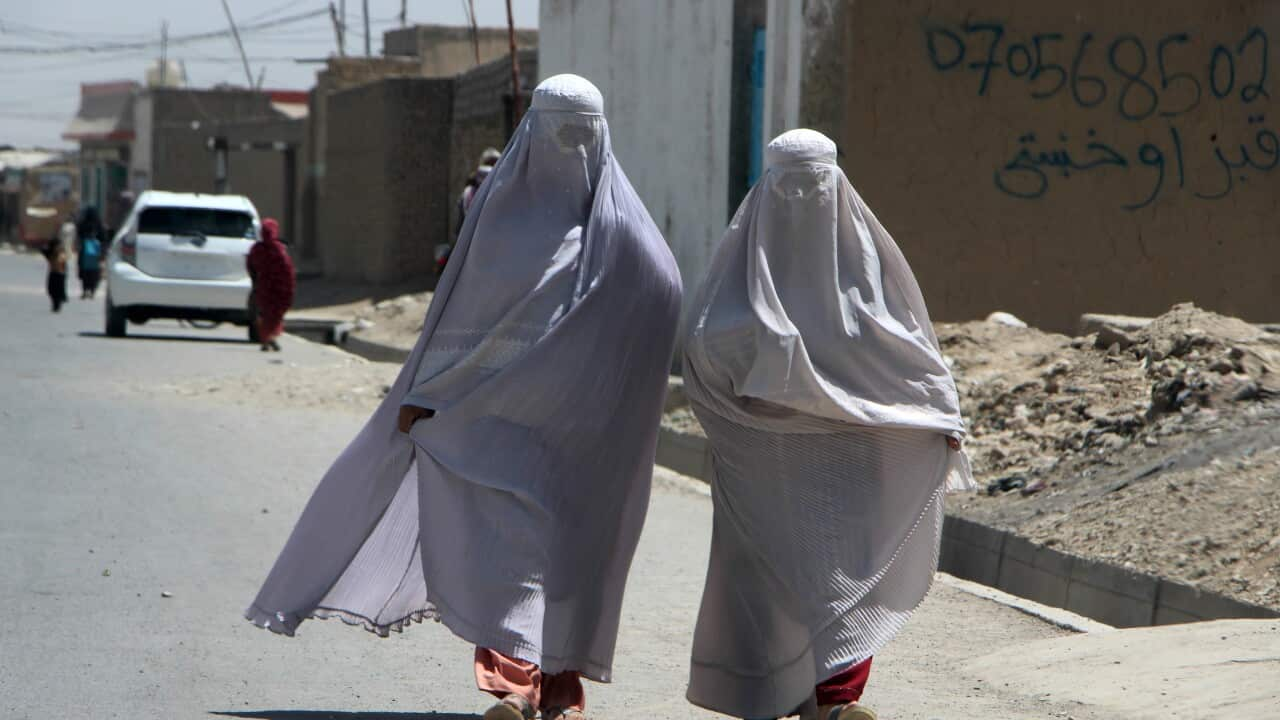Women in Afghanistan have been banned from showing their bare faces and speaking or singing in public in a move that has been sharply criticised by the head of the United Nations mission in the region.
The ruling Taliban set up a ministry for the "propagation of virtue and the prevention of vice" after seizing power in 2021.
The ministry published 'vice and virtue' laws last week that cover aspects of everyday life like public transportation, music, shaving and celebrations, after being approved by supreme leader Hibatullah Akhundzada.
They are the first formal declaration of vice and virtue laws in Afghanistan since the Taliban's takeover.
The laws empower the ministry to be at the frontline of policing personal conduct and administering punishments such as warnings or arrest if they allege Afghans have broken the laws.
What's included in the legislation?
In addition to restrictions on women's behaviour, the 35-article legislation imposes wide-ranging stipulations, including rules on men's clothing and attending prayers as well as bans on keeping photos of living beings, homosexuality, animal fighting, playing music in public and non-Muslim holidays.
Article 13 relates to women. It says it's mandatory for a woman to veil her body at all times in public and that a face covering is essential to avoid temptation and tempting others.
According to the document, clothing should not be thin, tight or short. Muslim women are obliged to cover themselves in front of non-Muslim males and females.

Included in the legislation is the outlawing of women looking at men they are not related to by blood or marriage. Source: AAP / Qudratullah Razwan/EPA
Article 17 bans the publication of images of living beings, which threatens an already fragile Afghan media landscape.
Article 19 bans the playing of music, the transportation of solo female travellers, and the mixing of men and women who are not related to each other.
The law also obliges passengers and drivers to perform prayers at designated times.
"A lot of these rules were in place already but less formally and now they are being formalised I think this is a sign of what we've been seeing over the last three years which is a steady and gradual escalation of the crackdown," said Heather Barr, associate director of Human Rights Watch's Women's Rights Division.
UN says laws are a 'distressing vision' for Afghanistan's future
On Sunday, the United Nations Assistance Mission in Afghanistan (UNAMA) shared a statement expressing deep concern at the passing of the laws and their "arbitrary and potentially severe enforcement mechanisms".
"It is a distressing vision for Afghanistan’s future, where moral inspectors have discretionary powers to threaten and detain anyone based on broad and sometimes vague lists of infractions," said Roza Otunbayeva, head of UNAMA.
"It extends the already intolerable restrictions on the rights of Afghan women and girls, with even the sound of a female voice outside the home apparently deemed a moral violation," she said.

United Nations Assistance Mission in Afghanistan head Roza Otunbayeva said the new laws extended "already intolerable restrictions" on the rights of Afghan women and girls. Source: Getty / Pacific Press/LightRocket
In July, a UN report said the ministry was contributing to a climate of fear and intimidation among Afghans through edicts and the methods used to enforce them.
It said the ministry's role was expanding into other areas of public life, including media monitoring and eradicating drug addiction.
On Monday, the European Union said it was "appalled" by the decree that "confirms and extends severe restrictions on the life of Afghans".
"This latest decision is another serious blow undermining the rights of Afghan women and girls, which we cannot tolerate," said a statement from EU foreign policy chief Josep Borrell.
Taliban rejects criticism as 'arrogance'
On Monday, the Taliban dismissed international criticism of the rules.
In a statement, chief government spokesperson Zabihullah Mujahid said the laws were "firmly rooted in Islamic teachings" that should be respected and understood.
"To reject these laws without such understanding is, in our view, an expression of arrogance."
With reporting by Reuters.











